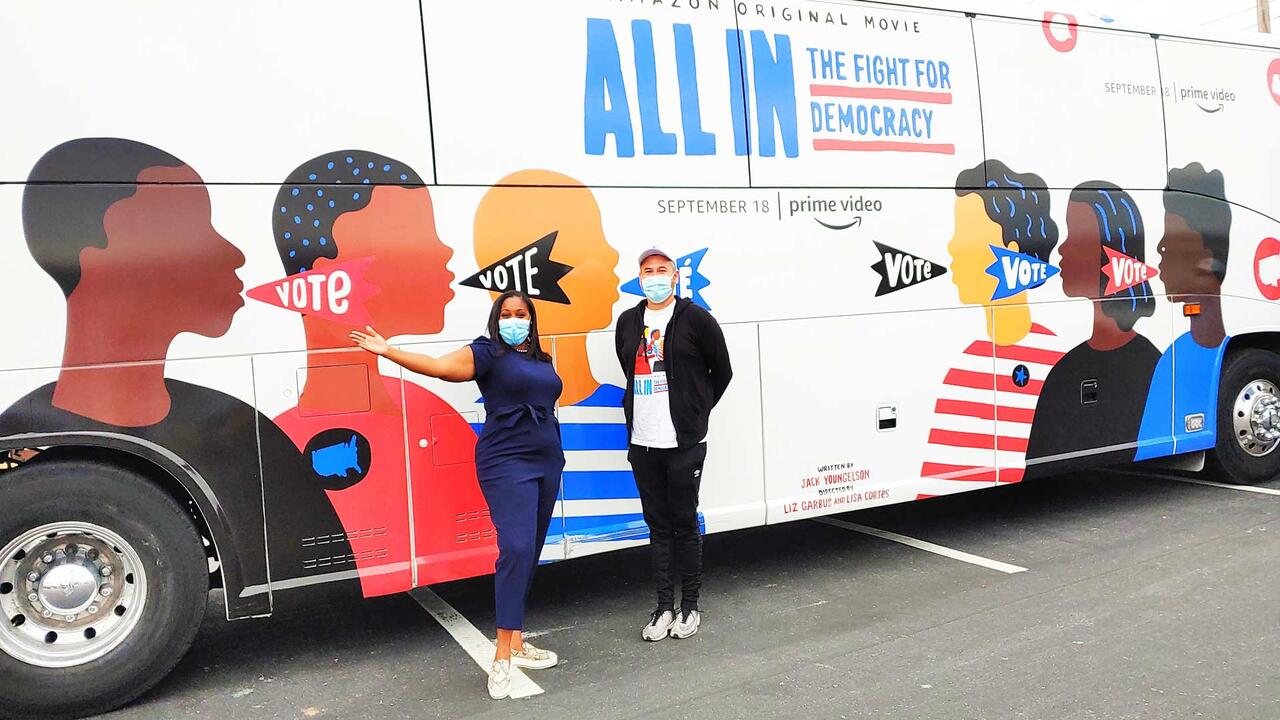
Why Vote? Ask Joy Styles ’96
“Between the protests and the pandemic, there is a lot going on that impacts your life immediately, so for you not to vote is unfathomable,” said Joy Styles ’96, councilwoman for District 32 in Nashville, Tenn. “Your vote matters. Your voice matters. It really does.”
Styles had no desire to be involved in politics, local or otherwise, when she was at Wellesley—she wanted to be a performer. She majored in Spanish in order to be bilingual for her planned recording career, then moved to New York City to pursue her dream. For 10 years, she worked in film, TV, voiceover acting, and off-Broadway plays and musicals before heading to Nashville to pursue a career in country music.
She eventually obtained a recording deal and released a single along with a video, no small feat as she is one of just a handful of Black female country artists. After Styles decided to leave the music industry and settle down, she chose to stay in Nashville. She built a house, and once she moved in she realized she wanted to be more involved in her community. “I said, this is my neighborhood, I have a home here and I am invested in it, so I decided to join the homeowners association (HOA). Not long after, I became its president,” she said.
When she started to look around her district, she realized it needed exactly what she was trying to bring to her neighborhood—accountability, transparency, and consistency. She decided to run for city council and was elected in August 2019.

Styles says wanting to go into public service is almost the “same level of crazy” as wanting to become a performer, but she was tired of the ineffectiveness of the elected individuals. “I think part of the reason why God really led me to this position is because I do not suffer fools gladly,” she said. “I did not run to take pictures and do interviews. I ran to actually get things done. And that is what I want people to say when they describe me: Joy Styles is effective and productive.”
Styles says the council is more progressive than ever, and for the first time 50 percent of its members are women.
She knows that politicians have a reputation for being self-absorbed and ineffective, but she has a different approach: “Here is my secret: I have a strong personality, and I am slightly pushy. So, if I ask for it, I don’t really ask for it and wait for you to get around to addressing it. When I ask for it, I have a time frame in my mind. Then I follow up on that time frame. A lot of governments move slow because they can, not because they have to. I can be difficult if I have to follow up frequently. It is a lot easier to just give me what I want.”
And what she wants for this election is for all people to vote, whether they have never voted or it has been years since their last vote. Styles is working hard to make that happen, partnering with All In For Voting, an initiative developed by Stacey Abrams, as well as developing her own initiative encouraging people to get dressed up when they head to the polls. “When the Voting Rights Act passed, the Black community dressed up in their Sunday best to cast their vote, because it was a special occasion,” she said. “Dressing up this year is an homage to all of the people who gave up their lives in order for future generations to have the right to cast their vote, and to have their voices be heard.”
She also wants people to be invested in more than just the presidential election. “You need to know who your local officials are, because they are the first step toward change in your community,” she said. “Who is representing you on a daily basis? Who is addressing parks, police, and potholes?”
“Your involvement has to start at the beginning, with boots on the ground,” she said, and noted that voting “is vitally important and affects your entire future, not just the next four years.”
“We all should be looking for people that speak to our own morals and values,” she said. And if you don’t see them, maybe you should consider running for office yourself. “We need all hands on deck right now. But what you cannot do is sit idly by,” she said. “Abstaining from voting is a vote for what you do not want. If you do not vote, you cannot complain about the system. Your vote is how the system changes. Be the change.”

